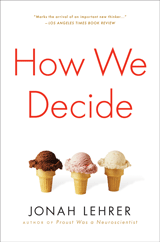In response to my post on the effects of mood on cognition, which also referenced the possibilities of self-medicating ourselves into the ideal mood, Andrew Sullivan offered up the following anecdote:
I was talking with a fine artist the other day and he was telling me how blocked he was on a piece, and how he then smoked some pot and everything came together.It unleashed what he wanted to express, by suppressing the analytic portion of his mind that was inhibiting him. I know this is the bleeding obvious to anyone who has a brain and an ounce of human experience but it is a truth we are somehow circumscribed from uttering in public.
There's a reason why jazz would be impossible without weed.
A new paper published in Psychiatry Research sheds some light on this phenomenon, or why smoking weed seems to unleash a stream of loose associations. The study looked at a phenomenon called semantic priming, in which the activation of one word allows us to react more quickly to related words. For instance, the word "dog" might lead to decreased reaction times for "wolf," "pet" and "Lassie," but won't alter how quickly we react to "chair".
Interestingly, marijuana seems to induce a state of hyper-priming, in which the reach of semantic priming extends outwards to distantly related concepts. As a result, we hear "dog" and think of nouns that, in more sober circumstances, would seem to have nothing in common.
Here's Vaughan Bell, lucid as always:
The effect [hyper-priming] has been reported, albeit inconsistently, in people with schizophrenia and some have suggested it might explain why affected people can sometimes make false or unlikely connections or have disjointed thoughts.As cannabis has been linked to a slight increased risk for psychosis, and certainly causes smokers to have freewheeling thoughts, the researchers decided to test whether stoned participants would show the 'hyper-priming' effect.
Volunteers who were under the influence of cannabis showed a definite 'hyper-priming' tendency where distant concepts were reacted to more quickly. Interestingly, they also showed some of this tendency when straight and sober .
Obviously, you don't want too much hyper-priming, or else everything seems connected; the web of associations becomes a source of delusions. But for many creative tasks it's important to cultivate an expansive associative net, or what psychologists refer to as a "flat associative hierarchy".
Interestingly, there's some speculative evidence that such distant intellectual connections are most likely to be generated in the right hemisphere. There is, for instance, that research on moments of insight that I've written about before. But there's also some interesting data from patients with selective hemispheric damage. When people suffer an injury to their left hemisphere, the side-effects are obvious: they typically lose the ability to speak in coherent sentences, or suffer other dramatic language deficits. They neglect relevant details, miss appointments and struggle to get dressed. People with right hemisphere damage, in contrast, tend to experience much more subtle symptoms, such as an inability to "get" a joke or perceive sarcasm or enjoy a poem. All of these skills require a coarse-grained kind of cognition, an ability to look past the details and see the remote associations.
And this returns us to madness. Several studies have found that people with extremely mild forms of schizophrenia - they're often referred to as "schizotypal"-- perform above average when solving various lab tasks used to measure creativity. What explains this anomaly? Interestingly, schizotypal subjects also have markedly enhanced right hemisphere function, and are more likely to rely on this hemisphere during normal cognitive processing.
Last speculative point: marijuana also enhances brain activity (at least as measured indirectly by cerebral blood flow) in the right hemisphere. The drug, in other words, doesn't just suppress our focus or obliterate our ability to pay attention. Instead, it seems to change the very nature of what we pay attention to, flattening out our hierarchy of associations.
If you're interested in an overview of our distinct hemispheric talents - a fascinating subject that has been obscured by too much bad pop science - I'd recommend this book.







Comments (43)
>The study looked at a phenomenon called semantic priming, in which the activation of one word allows us to react more quickly to related words. For instance, the word "dog" might lead to increased reaction times for "wolf," "pet" and "Lassie," but won't alter how quickly we react to "chair".
I think you mean decreased reaction times... : )
Thanks for this post - I just referred students in a Drugs course to your blog. We're discussing marijuana this week and they are very interested in these ideas...
Cheers!
Bill
Posted by: Bill Griesar | March 10, 2010 1:09 PM